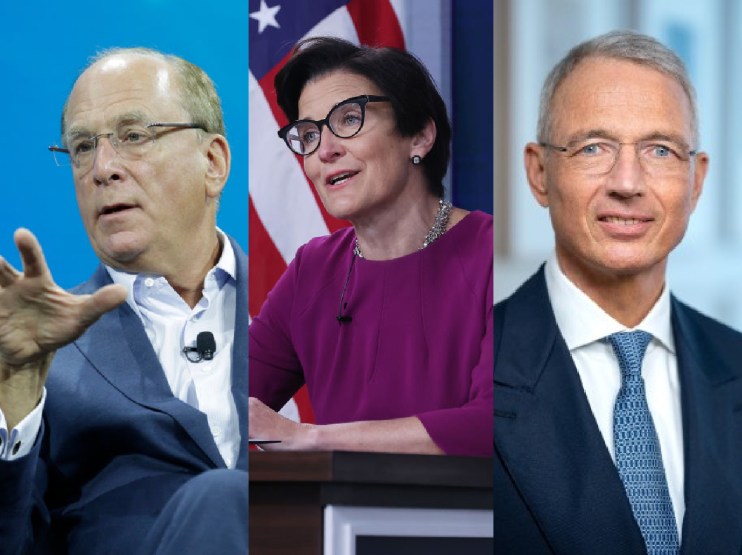Davos round-up: Citi’s lazy homeworkers, Credit Suisse’s ‘horrifying year’ and ESG investing gets political

As some of the world’s most important bankers gather at the World Economic Forum in Davos to discuss an array of economic, political and social challenges, City A.M. wraps up some of the top lines from the day.
Credit Suisse’s “horrifying year”
Credit Suisse’s own chair, Axel Lehmann, described 2022 as “a horrifying year for Credit Suisse” as he warned that “it will not look great” for bonuses at the bank in an interview with Bloomberg TV at Davos.
“When you suffered huge losses, it is clear that the budget gets cut also on bonuses”, he said.
Lehmann was not wrong that 2022 wasn’t easy for Credit Suisse.
Credit Suisse’s share price dropped by over 60 per cent during 2022 as the lender faced yet more scandals and rumours spread about its capital reserves.
In February, it became the first major bank to face criminal trial in Switzerland for being involved in money laundering by a Bulgarian cocaine trafficking gang. It was found guilty and fined 1.7m.
In October, it said it would be slashing 9,000 jobs after losses rose 150 per cent in just one quarter. It announced major restructuring plans in October – including a £3.5bn capital injection from the Saudi National Bank – amidst rumours it was in danger of collapsing.
It may need more than bonus cuts in 2023 to turn the ship around.
Citi homeworking employees in need of “coaching”
Citi CEO Jane Fraser said that some Citi employees might be in need of coaching to improve their productivity when working at home.
“You can see how productive someone is or isn’t and if they’re not being productive we bring them back to the office, or back to the site, and we give them the coaching they need until they bring the productivity back up again,” Chief Executive Officer Jane Fraser said at a Bloomberg event in Davos.
Citi has one of Wall Street’s more flexible approaches to remote working, expecting most of its employees to be in the office three days a week.
Fraser’s comments suggest she is yet to be completely convinced by the virtues of home working, although she seems to accept it is here to stay.
“There’s an important balance here,” she said. “We’re going to have keep listening to our people and getting that balance right but if you don’t listen to them, you’re in danger of having some problems.”
Blackrock selling hope on ESG
The world’s largest asset manager has become a lightning rod for criticism of ESG investing, with billions of dollars being withdrawn from the supposedly “woke” investor by right-wing Republicans while left-wing Democrats have attacked the fund for not doing enough to stop fossil fuel funding.
Speaking at Davos, Larry Fink said that debates about ESG have led to “huge polarisation”.
“For the first time in my professional career, attacks are now personal. They’re trying to demonize the issues,” Fink said.
Just yesterday, referencing Davos, Elon Musk tweeted that the S in ESG stood for “satanic”.
Satanic or not, Fink reiterated his commitment to ESG investment, saying “BlackRock is a firm that tries to sell hope because why would anybody put something into a 30-year obligation unless you believe something is better in 30 years?”